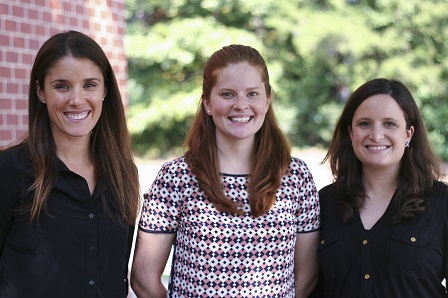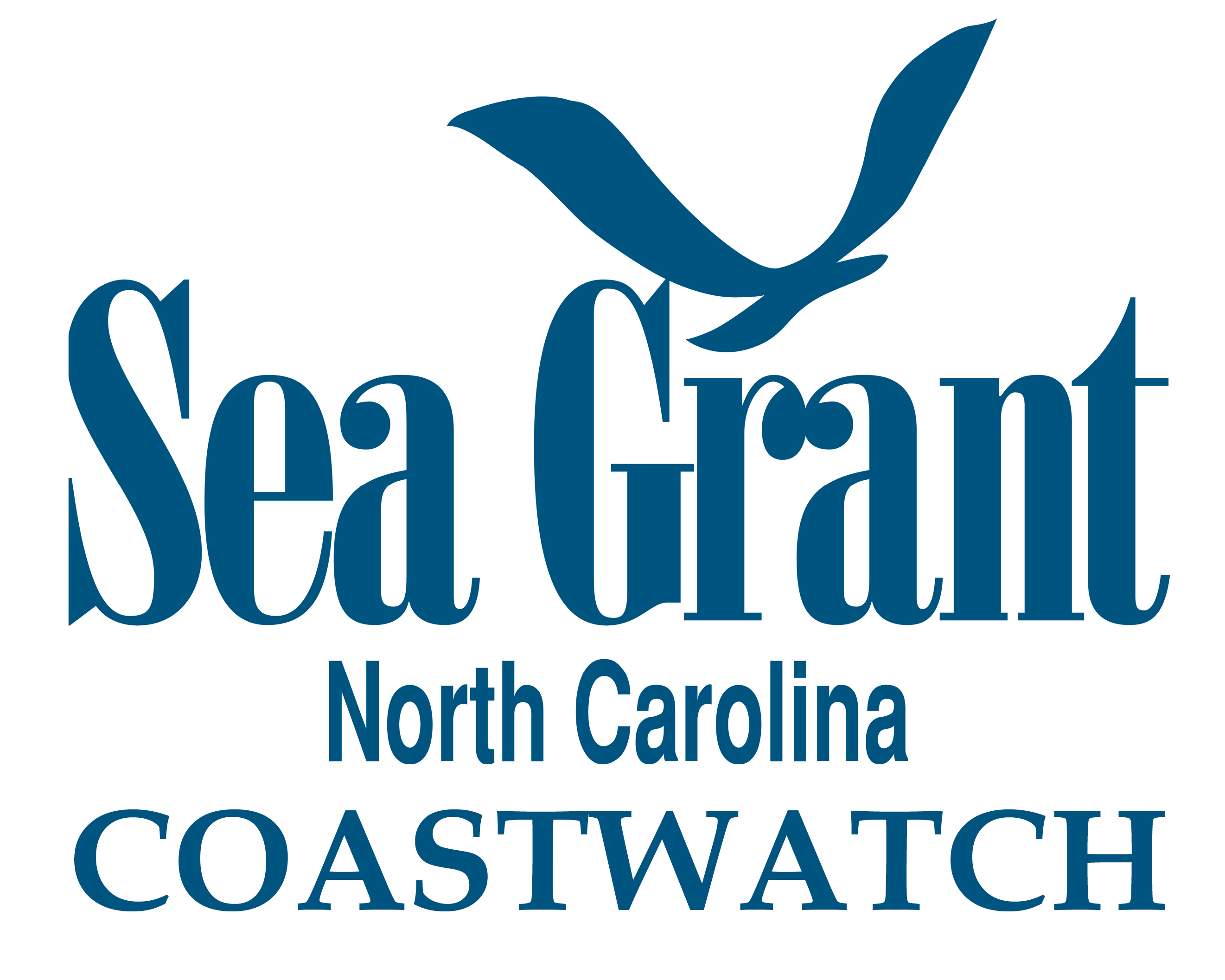By E-CHING LEE
Nichola Clark, Carolyn Doherty and Meagan Dunphy-Daly have started their duties as 2015 Dean John A. Knauss Marine Policy Fellows. They are from Duke University’s Nicholas School of the Environment.

Meagan Dunphy-Daly, Carolyn Doherty and NIchola Clark are the 2015 Dean John A. Knauss Marine Policy Fellows from North Carolina. Photo by E-Ching Lee.
Funded by the National Sea Grant College Program, the fellowship honors John A. Knauss, a Sea Grant founder and former dean of the University of Rhode Island’s Graduate School of Oceanography.
“The fellowship is an excellent training ground for emerging professionals,” says John Fear, North Carolina Sea Grant deputy director.
Graduate students are placed for a year with Congress or agencies in Washington, D.C., to focus on federal policies and processes affecting ocean, coastal and Great Lakes issues.
These three bring to 70 the number of Knauss placements for North Carolina, among the highest in the Sea Grant Network. Some fellows go on to careers in different states, while others remain in the capital after the fellowship. Articles in the Autumn and Holiday 2014 issues of Coastwatch feature past Knauss fellows from North Carolina.
- CLARK is serving as an international program analyst at the National Oceanic and Atmospheric Administration’s National Marine Fisheries Office of Law Enforcement. Her portfolio will include working with the Presidential Task Force on Combating Illegal, Unreported, and Unregulated (IUU) Fishing and Seafood Fraud.
“The Knauss fellowship will allow me to bridge the study of marine science and policy with the practice and implementation of that policy. I am really looking forward to taking advantage of that opportunity and I am especially excited that my fellowship will allow me to further my interests in international ocean governance,” she says.
Clark has a Master of Environmental Management degree, with a coastal concentration. She looked at the transparency of international marine governance organizations and analyzed the transparency of Regional Fisheries Management Organizations, or RFMOs. She also holds a bachelor’s degree from Trinity College in Hartford, Conn., and is originally from Conway, Ark.
- DOHERTY is assigned to the U.S. Department of State’s Office of Marine Conservation within the Bureau of Oceans and International Environmental and Scientific Affairs. The office is responsible for formulating and implementing U.S. policy on international issues concerning living marine resources.
“This fellowship is an incredible opportunity to broaden my interests and gain a new perspective about international fisheries management through the lens of foreign affairs,” she says.
Doherty has a Master of Environmental Management degree, with a concentration in coastal environmental management. For her master’s project, she explored the human dimension of ocean acidification, characterizing and measuring the socioeconomic, cultural and political forces that influence human vulnerability to this phenomenon. Doherty, who is from Media, Pa., also holds a bachelor’s degree in geography and environmental studies from the University of Richmond in Virginia.
- DUNPHY-DALY is a Congressional Affairs Fellow at NOAA’s Office of Legislative and Intergovernmental Affairs, acting as a liaison between NOAA and Congress on issues of marine policy.
“I’m very excited to gain a broad understanding of both NOAA and Congress,” she says of this opportunity. “I’ll be communicating to Members of Congress about why NOAA’s science is important. And I’ll learn about legislation that is relevant to NOAA.”
Dunphy-Daly is a doctoral candidate in marine science and conservation, where she researches the effectiveness of marine protected areas for pelagic species, including tunas, billfishes and sharks. She was the NOAA Fisheries/National Sea Grant Population Dynamics fellow from 2012 to 2015.
This Ferndale, Mich., native has a master’s degree from Florida International University and a bachelor’s degree from Oberlin College in Ohio.
For more information about the fellowship, go to ncseagrant.ncsu.edu and follow the Funding Opportunities link.
This article was published in the Spring 2015 issue of Coastwatch.
For contact information and reprint requests, visit ncseagrant.ncsu.edu/coastwatch/contact/.
